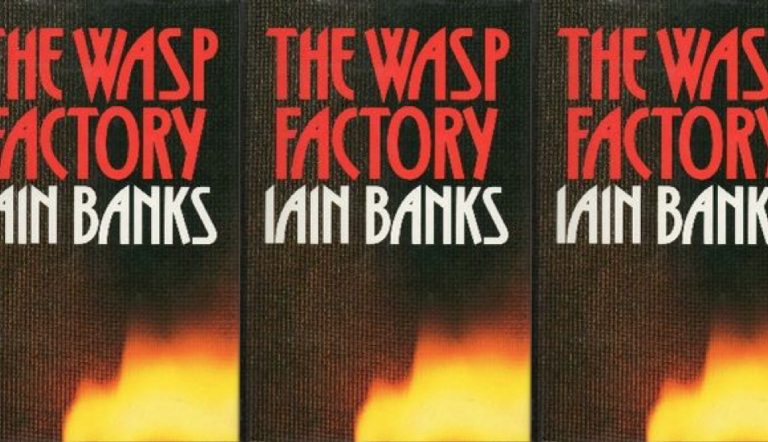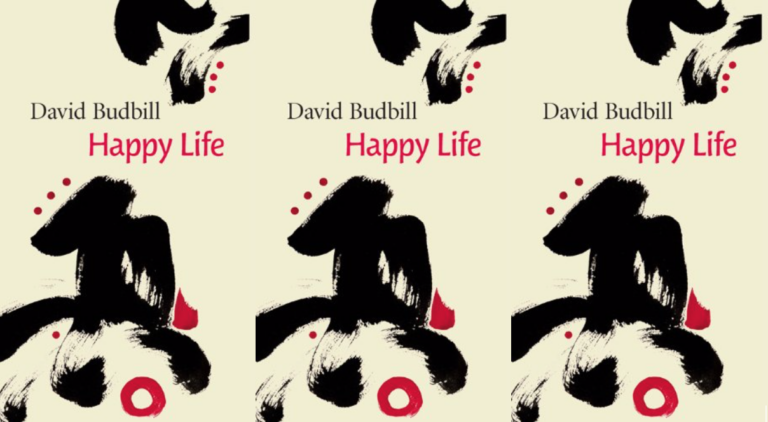“Innovators In Lit” Interview #1
We are currently having trouble attributing posts with WordPress. This post was written by Laura van den Berg.
I’m very excited to start my guest-blogging tenure at Ploughshares, where I will be bringing you nice people weekly interviews with “innovators in literature.” Whether it’s a different vision of what a publishing house can be or a new way to get books into the hands of readers or innovations in submission technology, the world of literary publishing is dense and vibrant and exciting, and these interviews will be devoted to chatting with the publishers, writers, booksellers, editors, inventors, and general masterminds who are making interesting things happen. In a soon-to-be-posted interview with Christopher Newgent of Vouched, he says that if “a model isn’t working, you have two choices: change it or become irrelevant.” Here are some of the people who are changing it.
Adam Robinson is the Founding Editor of Publishing Genius, an independent press that began in 2006 and gained a national reputation when its first-ever novel, Light Boxes by Shane Jones, was optioned by director Spike Jonze and picked up for re-print by Penguin. Publishing Genius has released 16 beautifully-made books since 2007, and has been featured in Bomb, Publisher’s Weekly, Poets & Writers, and Baltimore Magazine, who called Adam a “publishing tycoon.” Adam is also the author of two poetry collections, Say, Poem and Adam Robinson and Other Poems. He lives in Baltimore.
Laura: You’ve talked elsewhere about how Publishing Genius Press (henceforth referred to as PGP) came into existence, so I wanted to start by asking how you see PGP developing. Is the goal to keep doing what you’re doing, or do you see PGP expanding in new directions?
Adam: That’s a much more interesting question because it seems to me that PGP is still coming into existence. After four years it’s a small operation. I’ve got no one to answer to except the writers I publish, which means I’m still really flexible but it also means I’m, you know, not going to break any records this way. I often say “I want to be bigger than Google,” and I mean it.
Laura: PGP has four different components: Paperback Books, Chapbook Genius, isReads, and Everyday Genius. It seems like a number of indie presses keep multiple irons in the fire (I’m thinking Dzanc, Hobart, New York Tyrant). What’s the benefit of having a few different things going on, as opposed to focusing solely on, say, books?
Adam: Well, I started by publishing poems on telephone poles, then publishing staple-stitch chapbooks, so I think the books were actually the last thing I focused on. Those seemed so hard at first, like such an accomplishment just to figure out how to get them printed. Everything else, or at least isReads and Chapbook Genius, was the stuff that lead me to doing books. And then they were the things that keep me interested. That’s definitely a big benefit—whenever I get tired of playing one angle, I can work on something else. But I’m actually working to hand off isReads to its managing editor, and I’m dropping the ball on Chapbook Genius lately too. Now that I know something about how to do books, that’s what I want to attend to the most. That’s more than enough. Well—that and Everyday Genius. I love EG because the work there constantly surprises me. I think I learn more from EG than I do from almost everything else in the world. The other components keep me feeling vital.
Laura: According to today’s NYT, publishing is offering “Hints of Revival.” How much attention do you pay to publishing news?
Adam: A lot. I have NY Times alerts set for “PuBiz” so I get all their articles with that tag. I had already read that article, and in fact discussed it with some other small press “industry types,” Youngs Mike and Joe. I was surprised that adult fiction is out in front in terms of profitability. That’s the real story there. I’m not surprised that juvenile literature is strong. I’m even thinking about getting into some YA.
Laura: What would your dream YA project be like?
Adam: It would have to be serious and complex, but that’s not breaking any molds. There’s a lot of serious and complex YA out there. I’ve been mulling over Maniac Magee for 20 years. One of the things I admire about YA is how well the good books mesh emotional meaning with genuinely accessible stories. In some ways I think it is the purest form of fiction. It’s unadulterated and immediate. My dream project would come from someone like a great, highfalutin poet who put together a plot-driven and sad series of books about a sad kid who discovers a doorway to a parallel universe. This is my call for submissions.
Laura: How do you define a “successful” PGP book?
Adam: All my interactions with Chris Toll—whose book The Disinformation Phase, just came out in June—made me feel like doing his book mattered. We would have meetings over dinner where he would break out his To-Do list and we would talk and dream and scheme. He just did a great interview at the Artichoke Haircut blog where he speaks about his poetry in a kind of nebular way, but his process with the book was very practical and ambitious and the way he felt about it and worked on it made me feel like I wasn’t just throwing words into an abyss, but doing something that made the world better. But I don’t think it’s going to fly off the shelves. At the same time, I released Fog Gorgeous Stag by Sean Lovelace. Sean had a really different approach, much more laid back, and his book is selling very well. And any book that still has legs a year after it came out, like Easter Rabbit by Joe Young or Stephanie Barber’s these here separated, is a huge success in my book. And Matthew Simmons’s A Jello Horse. That was an early success story. I was still making 125 books at a time when I did Jello Horse, and now I’ve printed like 700 more. And if one of my favorite movie directors calls and asks to buy the rights to something, that’s a success too.
Laura: What’s been one of your most exciting moments or experiences with PGP?
Adam: Easy: when I asked Mairéad Byrne, one of my favorite poets, a poet who does everything so right on and really, like, gets me, if she would like to do a book with PGP and she said yes. I was so nervous. I was shaking.
Laura: What are some other publishers or literary entities that you find inspiring?
Adam: Ugly Duckling Presse. I’m always amazed by the quality of their books, from the chapbooks to the various other series. UDP fills me with dread and envy and a will to live. Canarium’s books are gorgeous, too, as are Octopus’s. I just read Heather Christle’s new book from them, The Trees The Trees, and I laughed two or three times per page. Those are the poet places. For fiction I continue to marvel at what Featherproof does, and Hobart. And Ellipsis. I feel like these are obvious. Mike Young has been killing it with Magic Helicopter lately. For just being impressive and for something that I want to aspire to in terms of business savvy, I really admire Melville House and Fence Books. I guess I’m too all over the map.
Laura: In addition to all your work with PGP, you and artist Stephanie Barber also recently started a reading series in Baltimore, Say it with Writing. I’ve seen a lot of “death-to-the-reading” kind of stuff lately, like this article in The Observer. Why did you guys decide to start a reading series now?
Adam: That’s an interesting article in The Observer, but I don’t think it’s really anti-readings. It’s just anti bad readings. And people are becoming more and more aware that being a good writer doesn’t actually qualify a person to read their work in front of an audience. I think most readings are pretty bad, but I also think they’re getting better and better all the time. The thing that Stephanie and I try to do is take it seriously. We try to write informative and critical introductions for the people who read at Say it with Writing, rather than just reciting the bio that the writer sent in a few months before. I mean, how much does it help an audience to know someone published in elimae three years ago? We think that a good introduction is part of the payment a writer should expect for doing a reading. But, honestly, that’s not why we started the series. In fact, I hesitate to even call it a series because we only hold the readings when someone whose writing we admire contacts me asking for one. I think by only hosting writers I know are great, I never have to worry about any stinkers.
Laura: You live in Baltimore. What’s the literary community like there?
Adam: I just came back from a meeting with a local developer who is creating a pretty interesting and complicated and innovative publishing system. That’s the way Baltimore is—there’s a little of everything, from aspiring writers to aspiring publishers to aspiring tech developers. It’s amazingly vibrant and diverse. I’m pretty active in it, I go to readings all the time, but I feel like I’m only aware of a small portion of everything that’s out there. I like that, the sense that I can’t keep up.
Laura: What do you wish existed in publishing that hasn’t been invented yet?
Adam: There are so many people innovating solutions in small press publishing that don’t deal directly with, like, being a writer or a publisher, that I’m forever optimistic about new inventions. One thing that I’d like to see is an application for tracking sales. I’ve built a really involved spreadsheet for the books I’ve published, but I haven’t integrated sales to stores or consignment sales very effectively. And this software would be able to kick out all sorts of reports for royalties. I know that things like Salesforce exist, but something that is developed specifically for a small press business model would, holy cow, turn my life around. I think those Submishmash brainiac’s could do it.
This is Laura van den Berg’s first post as a Guest Blogger.



